The FIFA Club World Cup 2025, in its revamped format, has delivered a captivating group stage filled with surprises. The tournament features an expanded field of teams, a new trophy, multiple venues, and innovative referee technology, mirroring the scale and excitement of the World Cup.
Organizers have positioned the event as a celebration of aspiration, excellence, and collective passion for the sport, uniting clubs, players, and fans. This edition marks a significant evolution with numerous debutants and an extended month-long schedule.
With the group stage concluded and the Round of 16 set, the competition has already showcased its share of unexpected results, David vs. Goliath clashes, and intense moments.

Auckland City, ranked 4,971st globally, entered the Club World Cup as the lowest-ranked team. They found themselves in a group with powerhouses Bayern Munich, Benfica, and Boca Juniors.
Composed of amateur players from New Zealand's Northern League, Auckland City faced a daunting challenge. They suffered a heavy 0-10 defeat to Bayern Munich, the tournament's largest margin of victory, followed by a 0-6 loss to Benfica.
Despite being eliminated, Auckland City faced Argentinian giants Boca Juniors in their final match. Against all odds, the amateurs held Boca to a 1-1 draw, denying them a spot in the Round of 16. The result was particularly significant given the 4,819-point ranking difference and Boca's storied history.
Lionel Messi's Inter Miami, alongside Luis Suarez, Jordi Alba, and Sergio Busquets, defied expectations by advancing to the Round of 16 from a group that included Porto, Al Ahly, and Palmeiras.
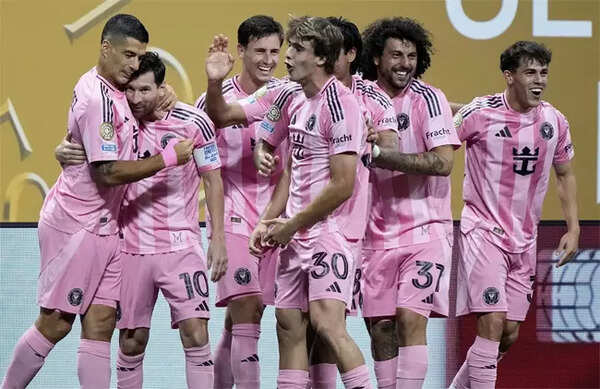
Although Miami secured only one win, it proved sufficient. After a draw against Al Ahly, Messi's brilliance, highlighted by a stunning free-kick, led to a 2-1 victory over Porto. A 2-2 draw against Palmeiras secured their place in the next round.
The final matchday in Group E saw tensions escalate as River Plate's Marcos Acuna and Inter Milan's Denzel Dumfries nearly came to blows after Inter denied River a spot in the Round of 16. The confrontation, rooted in a previous encounter three years prior, involved Acuna displaying the 2022 World Cup trophy logo on his shin guard, a reminder of Argentina's victory over the Netherlands in a heated quarter-final.
Extreme heat also played a significant role, with teams resorting to ice baths and cold towels to cope. Borussia Dortmund even had their substitutes watch the game from the locker room to shield them from the scorching conditions, which their coach described as "sauna-like." Thunderstorms and lightning caused delays in multiple games.
Furthermore, the tournament marks the first time that ICE (US Immigration and Customs Enforcement) has been present, along with Customs and Border Protection (CBP), requiring non-citizens to provide proof of legal status to attend matches.
With the 2026 FIFA World Cup less than a year away, this tournament has highlighted several concerns. Issues ranging from pitch quality to extreme weather conditions have marred the experience.
Real Madrid's Jude Bellingham criticized the pitch conditions, stating, "The pitches aren’t great here. The pitches aren’t great at all."
Despite the surprises and underdog stories, the tournament continues to be dominated by European powerhouses. Teams such as Real Madrid and Manchester City remain strong contenders for the title. Notably, Seattle Sounders, Urawa Reds, Ulsan, Wydad AC, and Pachuca were eliminated without earning a single point.
Newer articles
Older articles
 Raducanu Laughs Off Alcaraz Romance Rumors, Confirms US Open Doubles Partnership
Raducanu Laughs Off Alcaraz Romance Rumors, Confirms US Open Doubles Partnership
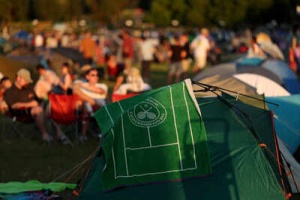 Wimbledon 2025: Extreme Heat Forces Cooling Breaks as Temperatures Hit Record High
Wimbledon 2025: Extreme Heat Forces Cooling Breaks as Temperatures Hit Record High
 Gavaskar Calls for Kuldeep Yadav Inclusion Amid Bumrah Fitness Concerns Ahead of Second England Test
Gavaskar Calls for Kuldeep Yadav Inclusion Amid Bumrah Fitness Concerns Ahead of Second England Test
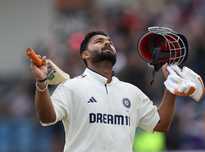 Greg Chappell: Rishabh Pant is Revolutionizing Cricket with Unorthodox Style
Greg Chappell: Rishabh Pant is Revolutionizing Cricket with Unorthodox Style
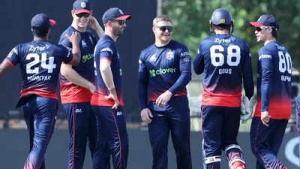 MLC 2025 Playoffs: Freedom, Super Kings, Unicorns & MI New York Vie for Title in Dallas
MLC 2025 Playoffs: Freedom, Super Kings, Unicorns & MI New York Vie for Title in Dallas
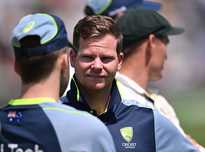 Smith Eyes Grenada Test Return After Injury Recovery
Smith Eyes Grenada Test Return After Injury Recovery
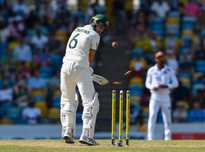 McDonald Calls for Patience as Australia Nurtures New Batting Order
McDonald Calls for Patience as Australia Nurtures New Batting Order
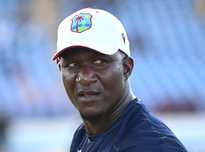 Daren Sammy Sanctioned for Public Umpire Criticism, Receives Demerit Point
Daren Sammy Sanctioned for Public Umpire Criticism, Receives Demerit Point
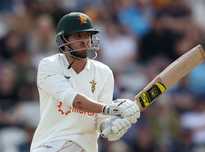 Bennett Out of South Africa Test After Blow to the Head; Masvaure Called Up
Bennett Out of South Africa Test After Blow to the Head; Masvaure Called Up
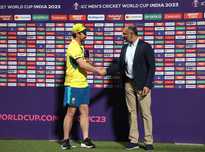 Sanjog Gupta Tapped as Next ICC Chief, Set to Helm Global Cricket Body in 2025
Sanjog Gupta Tapped as Next ICC Chief, Set to Helm Global Cricket Body in 2025